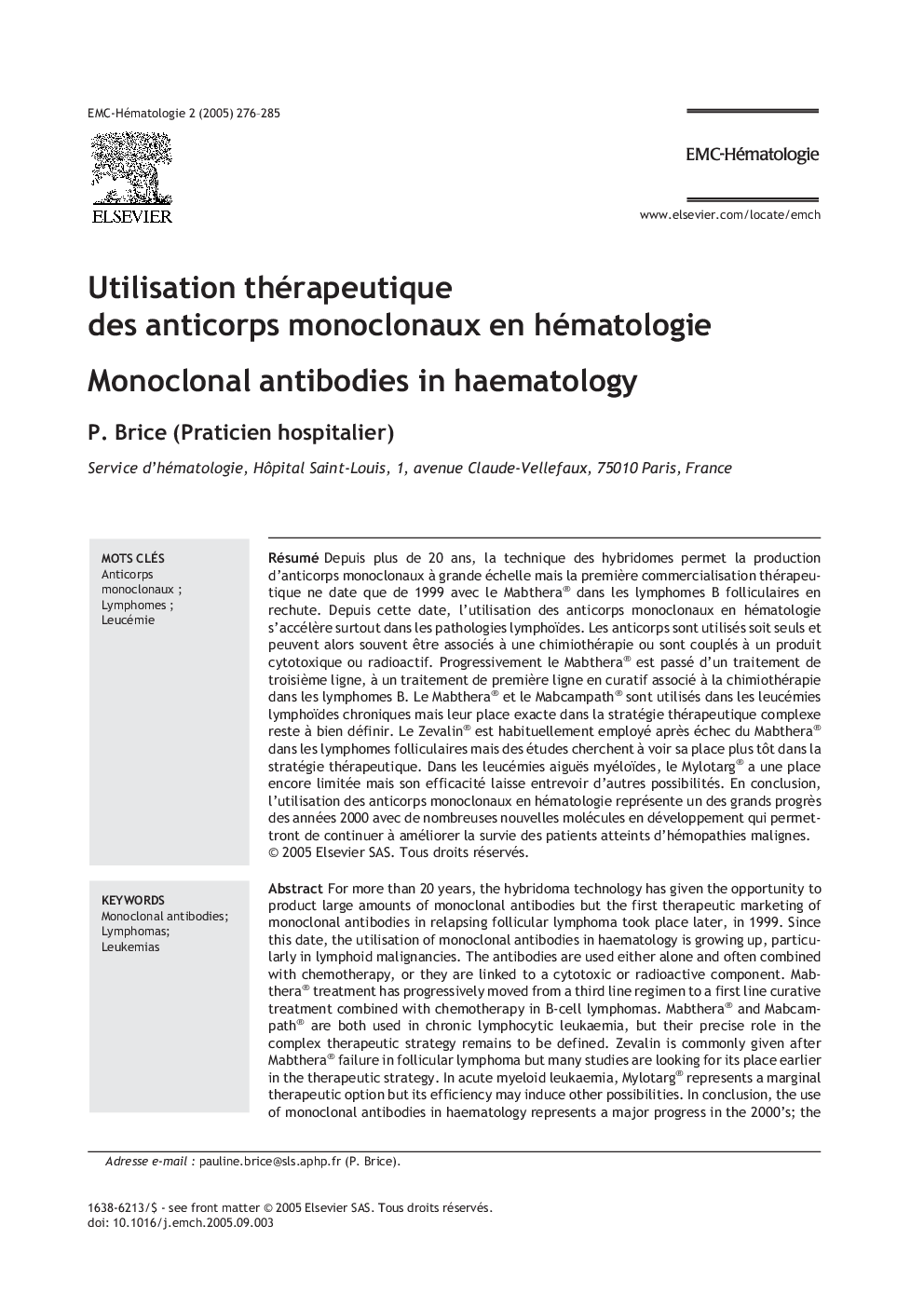| Article ID | Journal | Published Year | Pages | File Type |
|---|---|---|---|---|
| 9258268 | EMC - Hématologie | 2005 | 10 Pages |
Abstract
For more than 20 years, the hybridoma technology has given the opportunity to product large amounts of monoclonal antibodies but the first therapeutic marketing of monoclonal antibodies in relapsing follicular lymphoma took place later, in 1999. Since this date, the utilisation of monoclonal antibodies in haematology is growing up, particularly in lymphoid malignancies. The antibodies are used either alone and often combined with chemotherapy, or they are linked to a cytotoxic or radioactive component. Mabthera® treatment has progressively moved from a third line regimen to a first line curative treatment combined with chemotherapy in B-cell lymphomas. Mabthera® and Mabcampath® are both used in chronic lymphocytic leukaemia, but their precise role in the complex therapeutic strategy remains to be defined. Zevalin is commonly given after Mabthera® failure in follicular lymphoma but many studies are looking for its place earlier in the therapeutic strategy. In acute myeloid leukaemia, Mylotarg® represents a marginal therapeutic option but its efficiency may induce other possibilities. In conclusion, the use of monoclonal antibodies in haematology represents a major progress in the 2000's; the development of many new molecules is promising in terms of survival of patients with haematological malignancies.
Related Topics
Health Sciences
Medicine and Dentistry
Hematology
Authors
P. (Praticien hospitalier),
